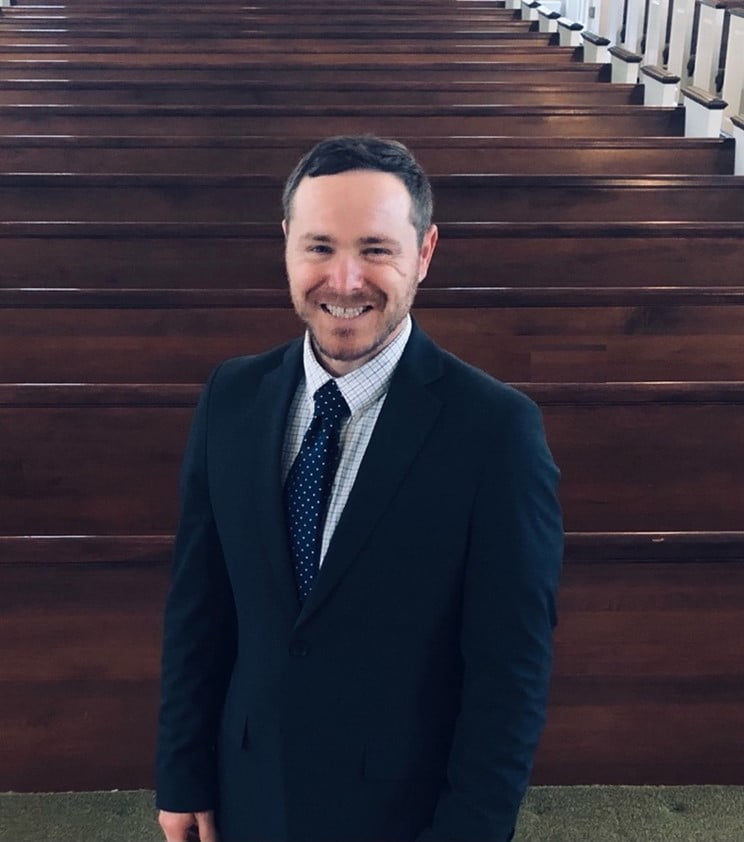⏱️ Estimated Reading Time: 9 min read
Preaching is serious business (2 Timothy 4:1-5; 1 Corinthians 1:23; Romans 10:14).[i] Most Christians agree with this concept and all pastors should. Listening to a sermon, being convicted, being encouraged to respond, and engaging spiritually are important.[ii] Therefore both preaching and listening to a sermon are central to a healthy church.[iii]
Brief Summary of Preaching
In concisely defining preaching, Jason Allen states that preaching is “teaching with passion.”[iv] Preaching is a form of communication that has played a pivotal role in the expansion of the Church.[v] However, preaching as a form of communication is complex and multifaceted. A major component of the Lord’s Day gathering is preaching God’s Word.[vi] Still, many fail to recognize that worship should focus on the centrality of Christ as presented in the sermon. This is fundamental to biblical preaching as a form of worship.
The New Testament demonstrates that worshiping “the Father in spirit and truth” (John 4:23)[vii], requires God’s Word to be explained and proclaimed to a local body of believers on the Lord’s Day. The gathered church is the intended audience for a Lord’s Day sermon. Believers have a responsibility to hunger for God’s Word and should settle for nothing less than a robust, biblically grounded, and shaped sermon. Additionally, every Lord’s Day sermon must be theologically sound. Therefore, church members have a responsibility to be prepared to hear from God’s Word.
The Influence of Mediated Communication on Preaching and Hearing Sermons
Cultural changes due to the proliferation of mediated communication influence how people listen to and respond to sermons. With individuals spending more time on social media as a major form of communication and more sermons being available on these platforms, we must ask, “What impact does that have on sermons?” As culture changes because of mediated communication, it is important to ask three questions: “How do I listen to a sermon?” “What can I do to better listen to a sermon?” Additionally, a pastor should likewise ask, “What can I do to effectively communicate God’s Word for today?” These questions impact sermon preparation, delivery, and the reception of a sermon by the congregation.
All preachers should want to impact their congregation with Word. Whether the sermon aims encourage, convict, explain, or feed, every Pastor is called to shepherd their congregations by providing biblically and theologically sound, and Spirit-filled sermons. In the First Great Awakening sitting under the preaching of Jonathan Edwards, many cried out and even broke down into tears.[viii] Preaching inspired the Second Great Awakening. The sermons delivered by The Prince of Preachers Charles Spurgeon are still studied.[ix] Fast forward to May 20, 2000, and on a rainy day John Piper preached, “to 40,000 college students at the fourth Passion Conference.”[x] Piper delivered what became known as “The Seashell Sermon” which is frequently credited as inspiring the Gospel-Centered Movement of the 2000-10s.
Yet, the cultural landscape and communication have changed greatly since 2000 and even more so since 1735 when Edwards preached during the First Great Awakening. There were no smartphones, social media, YouTube, or podcasts when Piper in 2000 (with the seashell sermon) expressed that generation must not “wastes their lives.”[xi] The world was twenty years away from the COVID-19 shutdowns and every pastor live streaming their sermons. We were also five years from the rise of Mark Driscoll’s sermons being available on the internet, and there were no Instagram or Tick-Tock Influencers in 2000. Regarding some of the difficulties faced by contemporary pastors and church attendees when it comes to sermons, T. David Gordon states, “Preaching today is ordinarily poor. . . . Many individuals today have never been under a steady diet of competent preaching.”[xii] Gordon wrote that in 2009 and access and use of social media have only expanded greatly since then. With those changes in communication, much has changed regarding how individuals understand themselves.[xiii]
Preachers face unique challenges when writing a sermon for today’s media-saturated Christian. Congregants too must consider what they can do to better prepare for and listen to a sermon. As John Frame notes “God’s word never leaves us the same. We hear it for the better or the worst.”[xiv] With Frame’s words and these challenges in mind, this author conducted a survey to better understand current practices in sermon listening and writing.
Methods Used for the Listening to Sermon Survey
The study was conducted using a Microsoft Forms survey starting April 28, 2023, and ending May 19, 2023. One-hundred-seventy-one responded to the survey shared over Facebook. Respondents were anonymous and self-reported to regularly attending worship. The survey contained eleven questions. Gender and age demographics were not included in the data collection.
Summary of Findings From the Listening to Sermon Survey
The goals of the survey were to learn how congregants listen to sermons and what pastors do to assist with this. However, this assumes that regular church attendees believe that listening to a sermon is important. This would be unfair to assume, so I asked survey participants, “On a scale of 1 (being not important) to 10 (being very important) How important is it for you to attentively listen to a sermon?” Of the 171 respondents 115 reported that listening to a sermon was 10 (very important). In total 95% or 160 total respondents reported from 8-10 as the level of importance for listening attentively to a sermon.
This should be encouraging to pastors because it suggests that many are highly motivated to listen to the Sunday morning sermon. Further, when asked how important it is to remember a sermon, 155 of the participants answered between 7-10 (10 being “very important”). Ninety-one percent of participants believe that remembering a sermon is important. This is incredibly relevant to pastors. Of those surveyed, it is not only important for them to listen, but for them to recall the content of a sermon. From the listener’s perspective, there is a huge desire for a sermon to be impactful.
Given the information above, one might wonder what congregants do to listen attentively to a sermon and what strategies are employed to remember a sermon. Eight different options were provided to participants with a variety of responses from, “I simply sit under the teaching and rely on the sermon text and slides. I do not use a Bible or Bible app” to “I listen with an open Bible and a note pad, jotting down passages and relevant points from the sermon.”[xv] Each of the provided answers sought to summarize the active role respondents took in listening to sermons.
For the vast majority of respondents, 121 (57%) reported taking notes when listening to a sermon was something they did regularly. Only 16 respondents reported to not opening a Bible or Bible app and just listening to the sermon. Further, only 18 respondents self-reported as being inconsistent to bring a Bible or Bible app when listening to the Sunday morning sermon.
Seeking to understand individuals’ unique perspectives on how they listen to a sermon, I utilized open-ended questions in my approach to the survey. I asked survey respondents, “What are some strategies you have found helpful for remembering a Sunday morning sermon?” While 171 individuals responded to the survey, there were only 156 short answers provided to the question. One individual noted, “Taking notes, flipping to passages in my Bible that are referenced, find at least 3 takeaways that are relevant for me in my current [sic] season of life, looking over sermon notes throughout the week, and talking to others about what I’ve learned from the sermon.” Further, a few specific themes emerged from the short answers. Phrases like “taking notes in my Bible,” “reviewing notes on Monday,” “application,” and “main points,” were all concepts that were repeated as strategies employed by respondents.
Finally, respondents were asked, “If you could give your pastor some advice to help you and your church better listen to Sunday morning sermons, what would it be?” Again, a few key phrases emerged from the 135 responses. Themes such as “outline of the sermon,” “main points,” “Scripture,” and “fill in the blank notes” were repeatedly stated. One respondent even noted, “Don’t make it too complicated. Simply preach what the Bible verse is teaching and stay on topic, not venturing off down “rabbit holes” and then jumping back to the passage.” Essentially, from the respondent’s perspective, sermons need structure, Scripture, and focus. This clarity is essential for preaching a memorable and impactful sermon.
Conclusion
The Apostle Paul makes clear the foundational importance of effective sermons when he asks, “How are they to hear without someone preaching?” (Romans 10:14). Despite the constantly changing world of mediated communication and its impacts on how individuals listen to and respond to sermons, the clarity of God’s Word rightly delivered will always be impactful (Isaiah 55:11). The preaching of the Sunday Morning Sermon is one of the primary responsibilities of the Pastor (Acts 6:4). The Pastor’s labor is not in vain.
This research demonstrates that the flock desires to be fed, is motivated to be fed, and needs to be fed. The collected data should serve as an encouragement to pastors and as a teaching tool for those in the pews. There are many ways that sermons can have an impact, but both the pastor and the congregant must make an effort to see that happen.
References
[i] James R. White, Pulpit Crimes: The Criminal Mishandling of God’s Word (Birmingham, AL: Solid Ground Christian Books, 2006), p. 11.
[ii] Jason Allen, Discerning Your Call to Ministry: How to know for sure and what to do about It (Chicago, IL: Moody, 2016), pp. 63-65.
[iii] Allen, p. 63.
[iv] Allen, p. 62.
[v] Timothy George, “How the Reformation Recovered Preaching,” The Gospel Coalition, February 13, 2017, accessed June 1, 2023, https://www.thegospelcoalition.org/article/how-the-reformation-recovered-preaching/.
[vi] Mark Dever, Nine Marks of a Healthy Church 3rd e.d. (Wheaton, IL: Crossway, 2013), pp.46-57.
[vii] All Scripture is taken from the English Standard Bible unless otherwise noted, (Crossway, Copyright © 2016).
[viii] Mark Galli and Ted Olsen, 131 Christians Everyone Should Know (Nashville, TN: B & H, 2000), pp. 43-45.
[ix] Geoffrey Chang, Spurgeon the Pastor: Recovering a Biblical and Theological Vision for Ministry (Nashville, TN: 2022).
[x] John Piper, “Reflections on the Seashells Sermon, 18 Years Later,” Desiring God, May 20, 2018, accessed June 1, 2023, https://www.desiringgod.org/interviews/reflections-on-the-seashells-sermon-18-years-later.
[xi] Ibid.
[xii] T. David Gordon, Why Johnny Can’t Preach: The Media Have Shaped the Messengers (Phillipsburg, NJ: P & R, 2009), p. 17.
[xiii] Neil Postman, Amusing Ourselves to Death: Public Discourse in the Age of Show Business (New York, NY: Penguin Books, 2005).
[xiv] John Frame, Systematic Theology: An Introduction to Christian Belief (Phillipsburg, NJ: P & R, 2013), p. 528.
[xv] This question allowed for more than one response. There were 212 individual responses.
David Guy Van Bebber Jr. is the son of a Southern Baptist Pastor from Kansas. He is his committed husband to Valerie and father of four children (Jonathan, Evie, Violet, and Elisha Guy). He is pastor at Linn Valley Community Church in Linn Valley, KS. He currently serves as an Adjunct Instructor at Spurgeon College in Kansas City, MO, where he teaches in the Communications Department. David has authored and contributed to four books and continues contributing to the Christian Apologetics ministry TAG You’re It! He is also a D.Min. Student at Columbia Evangelical Seminary.




